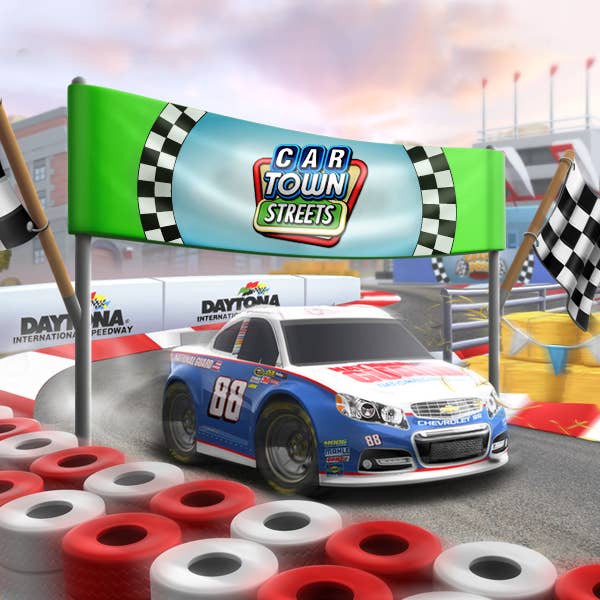Acquiring mobile game players: “It's not getting any easier”
Facebook's new mobile ad platform can help drive down costs - Cie Games CEO Dennis Suggs explains
It's all well and good to talk about game genres, game design, and game quality, but when you're trying to pay the bills out of revenue from a free-to-play mobile game you need to be really concerned about metrics like acquisition costs and monetization. Profits depend on the ability to reach a large enough audience and to get a significant percentage of them to pay for something within your game. Many companies have offered services where developers can pay for each game install from a user; this market has been fast-moving, competitive, and increasingly expensive.
Facebook's mobile advertising platform is an important entry into that acquisition market, and during its recent earnings call Facebook highlighted Cie Games as a successful example of the program. Cie Games used Facebook's mobile ad program to drive installs of a new game, Car Town Streets, which led to the game appearing on the top 10 games list on iOS in multiple countries. The payoff for Cie Games was achieving this result with a 40 percent lower cost per installation compared to other advertising.
GamesIndustry International spoke with Cie Games CEO Dennis Suggs about the company's first-hand experience with Facebook's mobile advertising platform. "There was some really great efficiency using Facebook's marketing in promoting our new iOS game Car Town Streets, the sequel to Car Town on Facebook," said Suggs. "Getting a 40 percent efficiency over the norm on Facebook, compared to other user acquisition channels on mobile, was pretty exciting for us."
"Acquisition costs probably are not going to get any cheaper, but while they will continue to rise it hopefully won't be as sharply as it has been"
Dennis Suggs
As Suggs notes, there are many advertising channels where you can get really low costs for game installs, but the installs you get are low quality - meaning low monetizing. "With any user acquisition the quality of the player that you get is a big part of what we're doing," said Suggs. Getting a big savings on the cost of installs and still getting a high-quality player was the best part about the Facebook program, he said.
Acquisition costs have been climbing for mobile games, but Suggs is reluctant to predict what the future might hold for the cost of user installs. "I wouldn't even venture a guess," said Suggs. "What was nice to see this year was, by comparing notes with other friends in the industry, I think some people felt user acquisition on mobile this year was going to ramp up very, very high. In some cases, depending on who you talk to, I don't think it hit the peak that people were anticipating. I don't know if that means it will start to level-off."
Suggs is realistic about the market, but still holds out some hope. "Mobile is the growing platform. Looking at it that way, acquisition costs probably are not going to get any cheaper, but while they will continue to rise it hopefully won't be as sharply as it has been," he said.
The improving quality of mobile games is also affecting the cost of acquisition, Suggs believes. "There are some games and apps that are coming out that are doing very well on monetization. I think, more than anything, as games get better they monetize better, and they'll be able to afford it. The prices can't break away from that." Suggs said the more competitive games drive a lot of monetization and high revenue, and those games start driving up the cost of user acquisition, because they can pay a lot more per user.
The popular strategy for mobile game publishers has been to muscle a game onto the best-selling lists through paid installs, and once a game is there you can get enough visibility to be sustainably viral. Suggs believes that basic strategy is still important, but there's more to success than that. "That's not all you need to do. Working the leaderboard is a strategy where the install rate per day is a big part of the formula Apple uses to calculate leaderboard position. A user acquisition strategy that I know a lot of people use is to do things in bursts to get your best position on the leaderboard. Then doing that, you get those organic installs, and that drives down your user acquisition costs."
Ultimately, though, Suggs believes it comes down to quality: "It's not getting any easier. I don't think any of us expect it to," said Suggs. "That's what drives us to make good content; we all want to, but the bar is constantly going up. Having a good game with good retention and good virality where people want to share the game is all part of doing it the right way."

